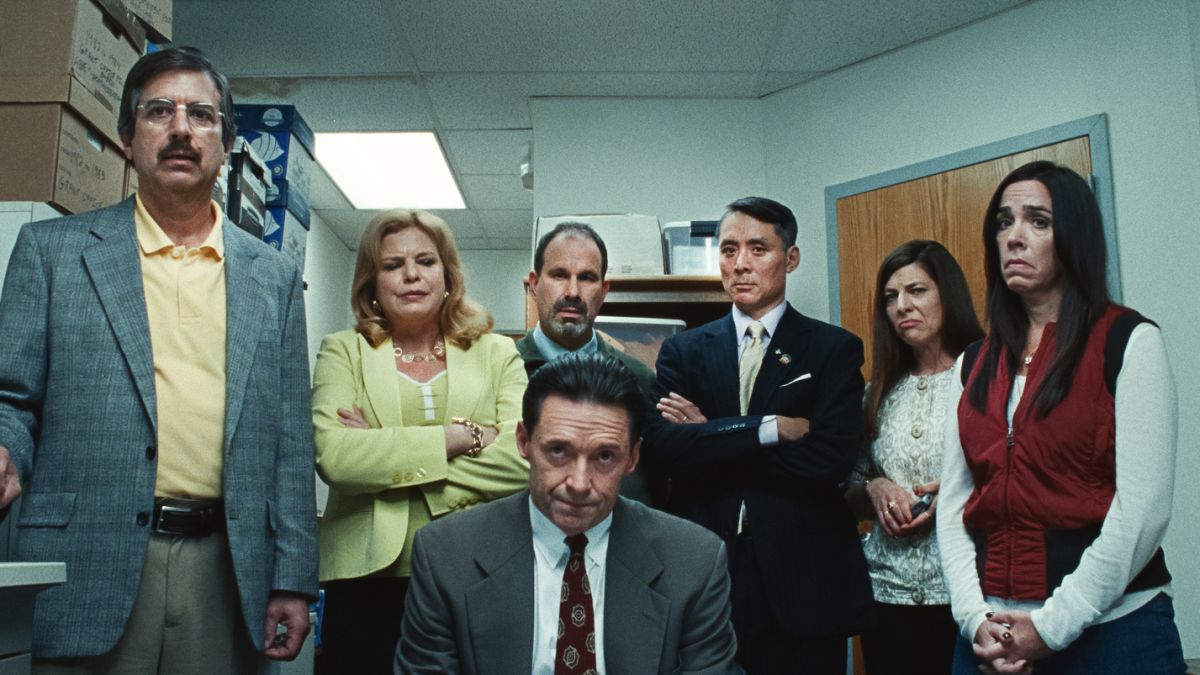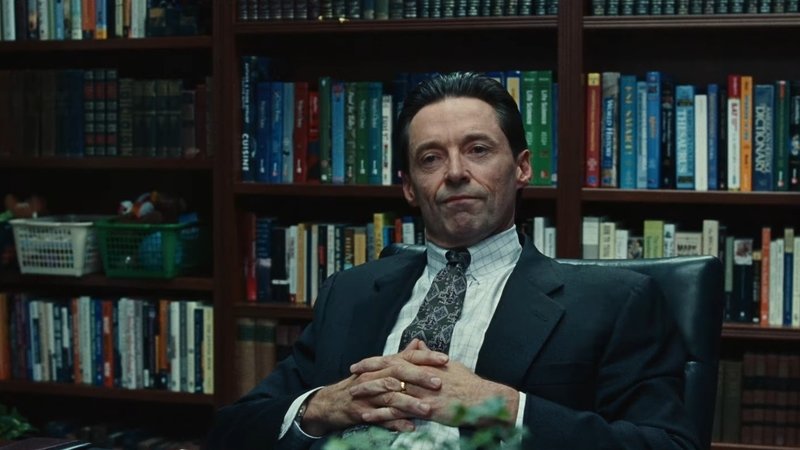In this first article of our new “Film Diary” series, Olivia takes a deep dive into the 2019 film Bad Education, exploring it from a filmmaking perspective and relating it to her own experiences as a Duke student. Spoiler warning for Bad Education.

As the fall semester here at Duke comes into full swing, I found myself daydreaming; wandering through the halls of memory to dwell in a garden of nostalgia—each of the spiraling flora dripping with memories. I am a freshman, so the lure of comfort and home is still fresh in my mind. In this haze of nostalgia I browsed around HBO MAX, until finally being unrelentingly drawn towards the 2019 film Bad Education.
Allow me to explain: in the spring of 2003 my parents decided to migrate from the gridded concrete of Brooklyn to the rolling suburbs of Long Island. There are many things on Long Island; there is talk of property values and rising taxes, sweet sixteens and Arnold Palmers—half lemonade half sweet tea to non natives. Mainly my parents moved for the public schools, in search of a good education for my brother and I.
However, just one county away from what would soon be our home lay the epicenter of the single largest school fraud in U.S. history. The infamous 2002 scandal at Roslyn school district, which coincidentally occurred in the year of my birth, is detailed in the narrative of the aforementioned film. But enough talk of hearth and home. Since much of the events detailed in this drama are public record, there isn’t much to spoil about the plot. Three notable scenes will be discussed at length here, so for those cinephiles who wish to proceed blind into any future screening: you have been warned.

Actor Hugh Jackman (left) and the real-life Frank Tassone (right)
This comedy-drama stars Hugh Jackman and Allison Janey as Superintendent Frank Tassone and his assistant Pam Gluckin, a duo who embezzled a sum total of $11 million dollars from Roslyn school district. The film enjoyed moderate prestige during the festival circuit—with particular compliments to both lead performances—and took home the Emmy for Outstanding Television Movie this past weekend.
Stylistically, the movie feels very grounded, no doubt due to writer Mike Makowsky’s close ties to the district, having first met the real Frank Tassone as a six year old student in Roslyn. Eliminating the figurative barrier between the viewer and the portrayed is traditionally framed as an achievement, but removing the impression of artifice can come off as sanctimoniously unpretentious. Luckily I don’t think Bad Education falls into this trap. Makowsky’s script is sharply written. The pithy back and forths reflect the performative nature of a certain upper echelon of suburban society. Perhaps not a flattering portrait, but an honest one to an extent.

Circular narrative plays a large role in the film’s structure, so I want to discuss its first and final scenes. The opening sequence consists of Tassone’s celebratory walk to the school auditorium as he basks in the adulation of his colleagues and the thunderous applause heard upon his arrival. However, until that penultimate moment where he reaches center stage he is known to the audience only as a silhouette. The scene begins with the camera tracking him from behind as if we are trailing after him. In this way, the jubilant reactions of the other characters in front of him are the only information made available to us about the man. Here, the film already begins to metaphorically fill in his empty silhouette for the audience, fueling the inference that Tassone is important, someone worthy of celebration.
At the film’s conclusion, however, we find Tassone in prison. The camera tracks his movements once again as he and the audience slip into the unreality of the school auditorium from the opening scene, except this time the camera is facing him, with sequential close ups letting us focus on his reaction as he once again arrives centerstage. Losing himself in their cheers, Tassone smiles for a brief moment before his expression crumples and tears threaten to spill. The screen fades to black.

Bad Education is defined by this control of information. Jackman’s portrayal epitomizes the fragile psyche of an aging narcissist; meticulously charismatic with a benignly unsettling disposition. Initially Tassone seems successful, every bit the humbly regal leader he is thought to be. However, as lie upon lie upon lie is revealed, his throne of deceit inevitably collapses in on itself and the pale player left upon the stage stands in sharp contrast to the idealized front seen at the start of the film.
This is certainly a cautionary tale, but the narrative’s themes go beyond the obvious warnings against greed and falsehoods. This is best examined through Jackman’s tour de force towards the latter half of the film. Tassone directs a truncated soliloquy at an entitled mother lobbying for her son’s automatic placement in a prestigious accelerated math program—loath to accept the boy’s inability to pass the placement test. It’s a striking lamentation; the strident timbre of his voice pitched toward the edge of desperation as he explains:
“My problem? My problem is you. It’s the people who trot their poor children out like race horses at Belmont; who derive some perverse joy out of treating us like low-level service reps. Do you remember the teachers who sat with you, who held you by the hand, who taught you to add and subtract, or showed you Gatsby and Salinger, for the first time? Mockingbird even? Do their names escape you? Are their faces a blur?”
The poignance is unexpected, especially coming from a compulsive liar. Tassone is framed as a man so utterly entrenched in the vacuous web of personal and professional deceptions he can scarcely see beyond his profound selfishness, a man who is in his very essence a lie. And yet his scorn for this mother, this symbol of those who desire reward without work, is genuine. On some level he is disgusted by the subculture of hollow excellence seen in suburban helicopter parents, desperate to prop their children up. As much as Tassone’s fall from grace makes him an object of critique, the toxicity of the school’s culture is just as much a target.

As someone who has been nothing short of utterly enriched by the educators I’ve had the pleasure of engaging with, the scene struck a chord with me. Bad Education is a reminder of the true value of teaching and the danger posed when that value is forgotten—whether by dishonest administrators or overzealous parents.
Instruction is more than mere dictation; the exchange between teacher and student is sacrosanct. We live in a time of great fear, which is antipathy to learning, and yet here we are: Duke students and faculty are weathering the storm together, both in person and online. This film can serve as a reminder to all of us in the midst of this challenging semester. Do not mistake our being here as something paltry. Our investment in this experience and one another, truly means something.

Recent Comments